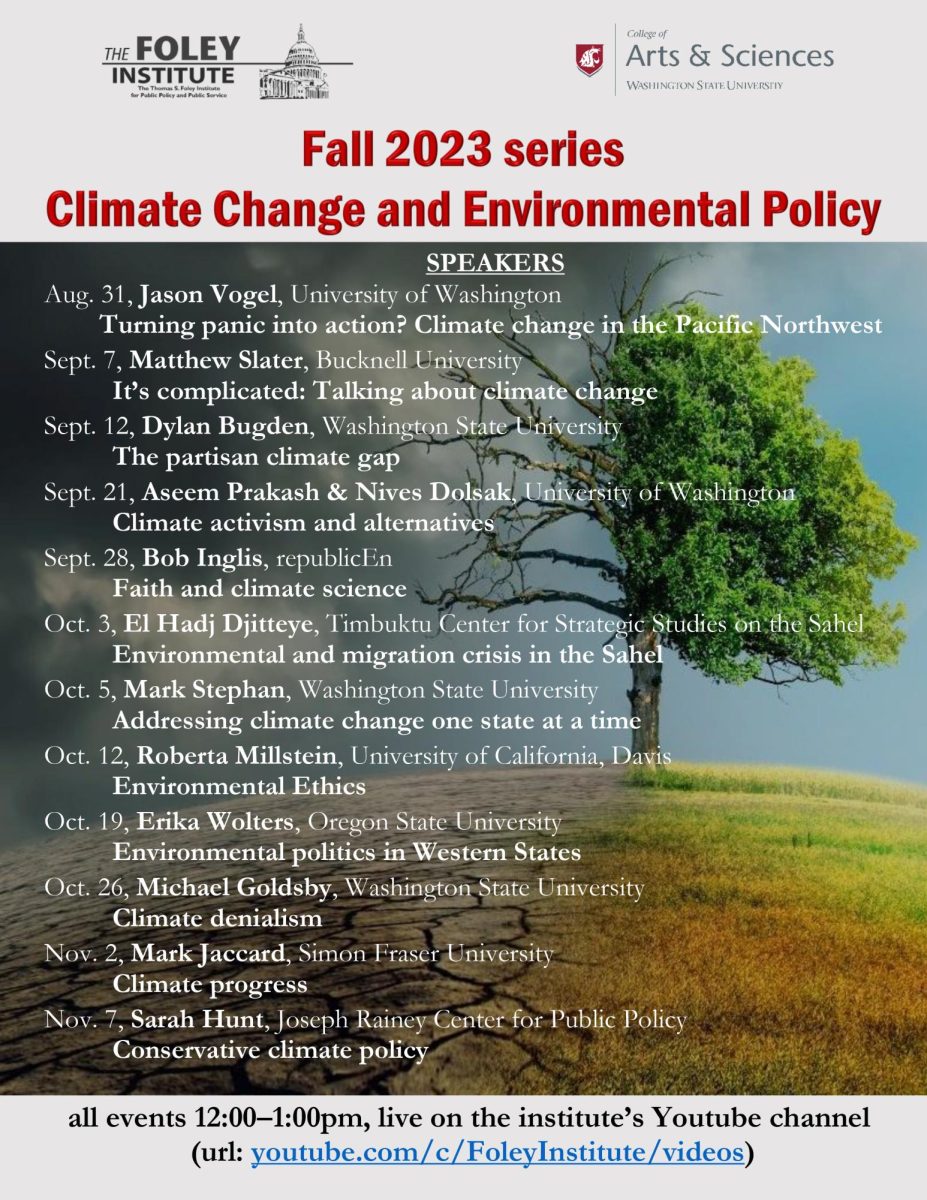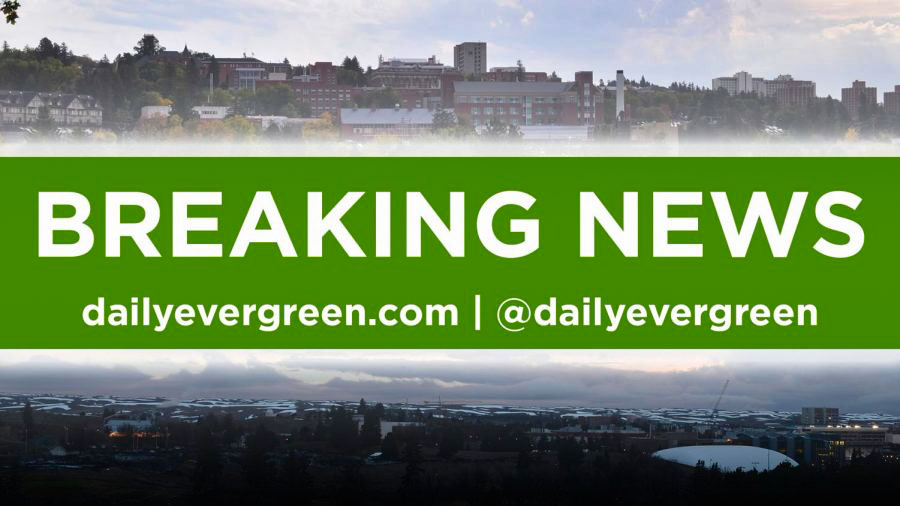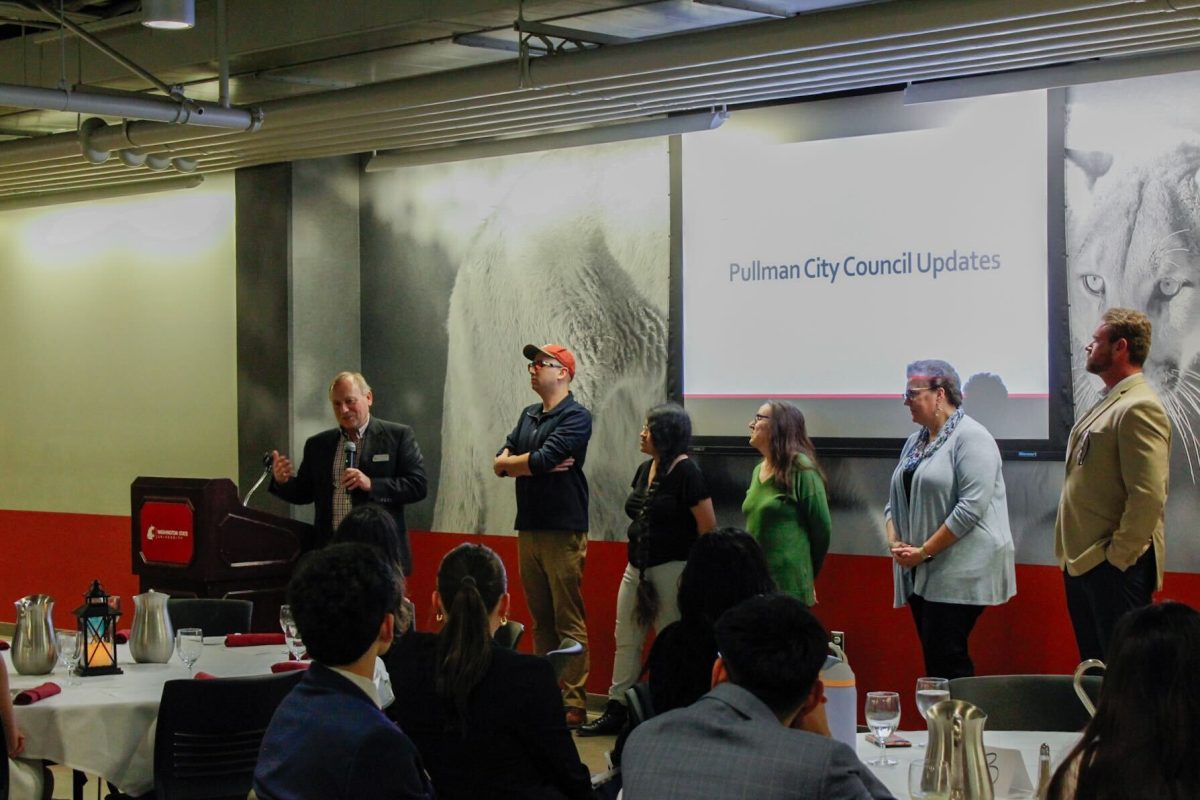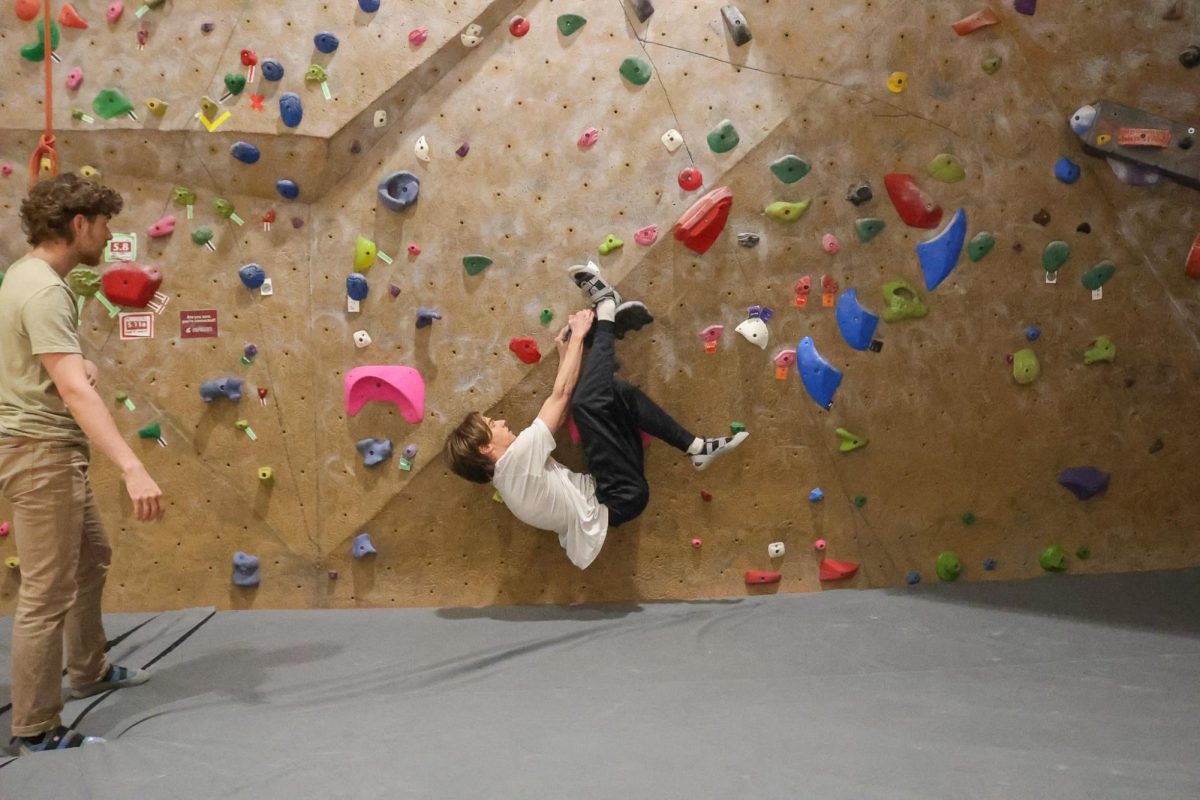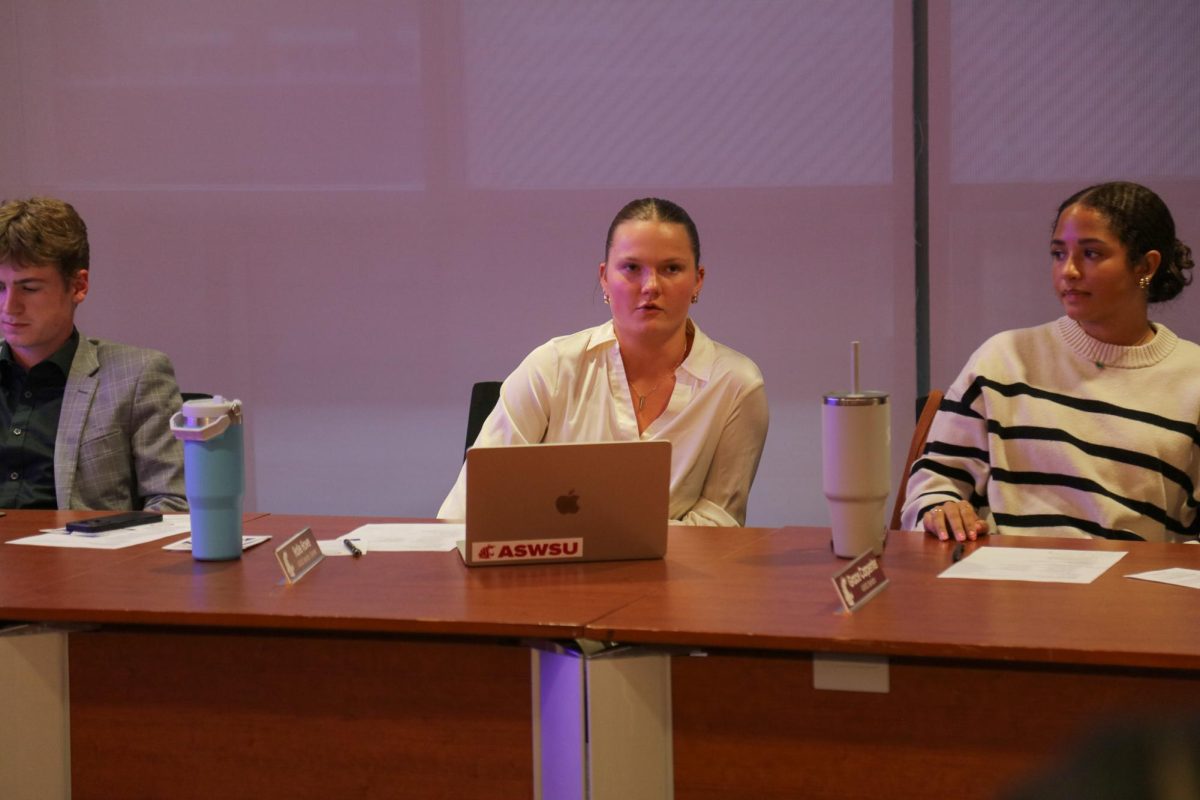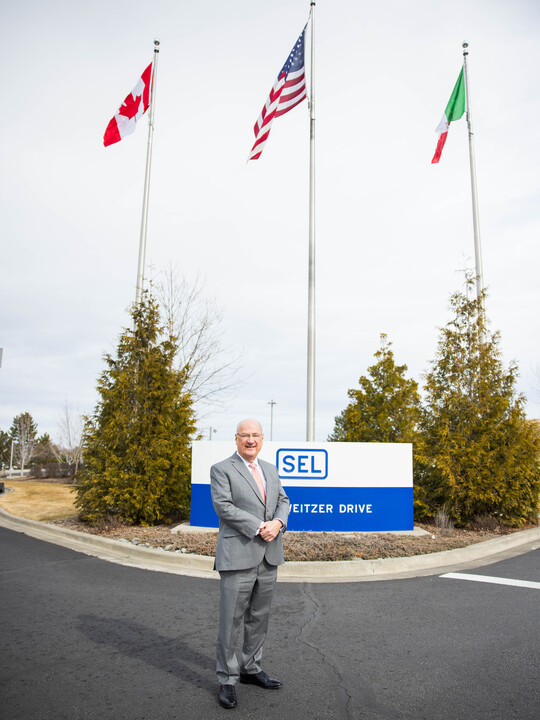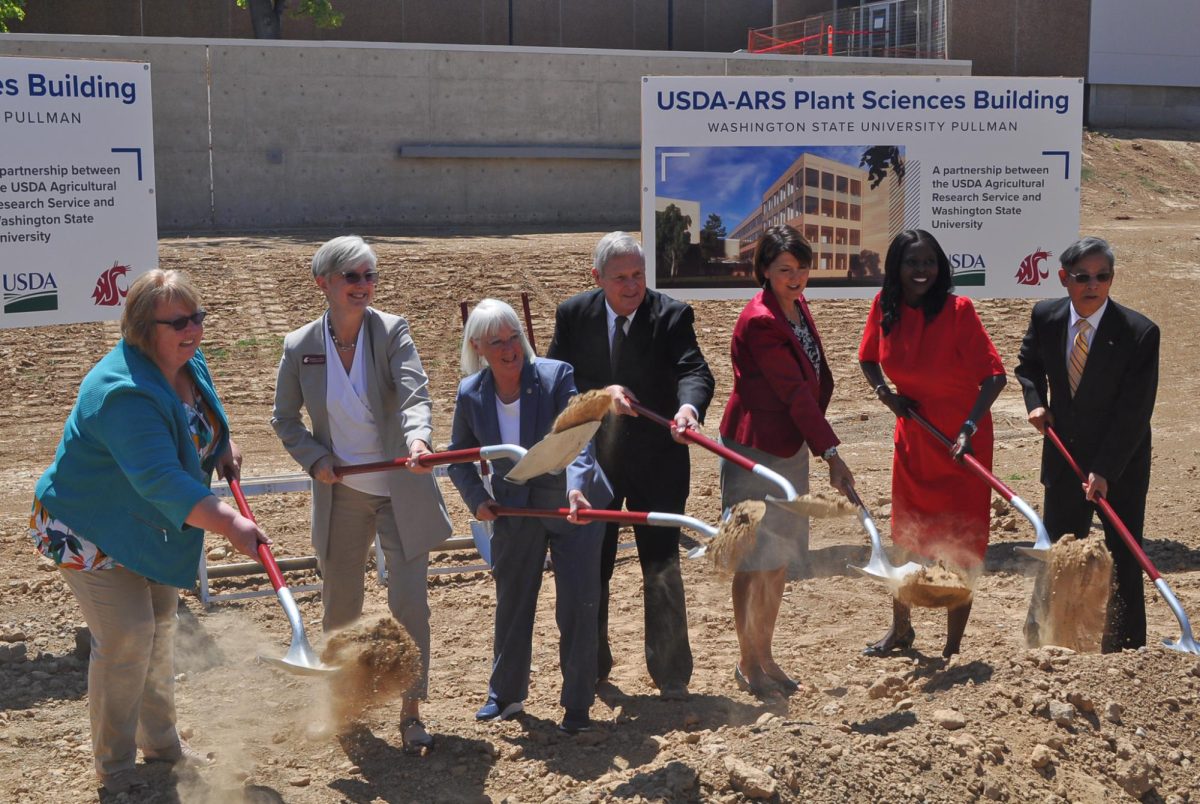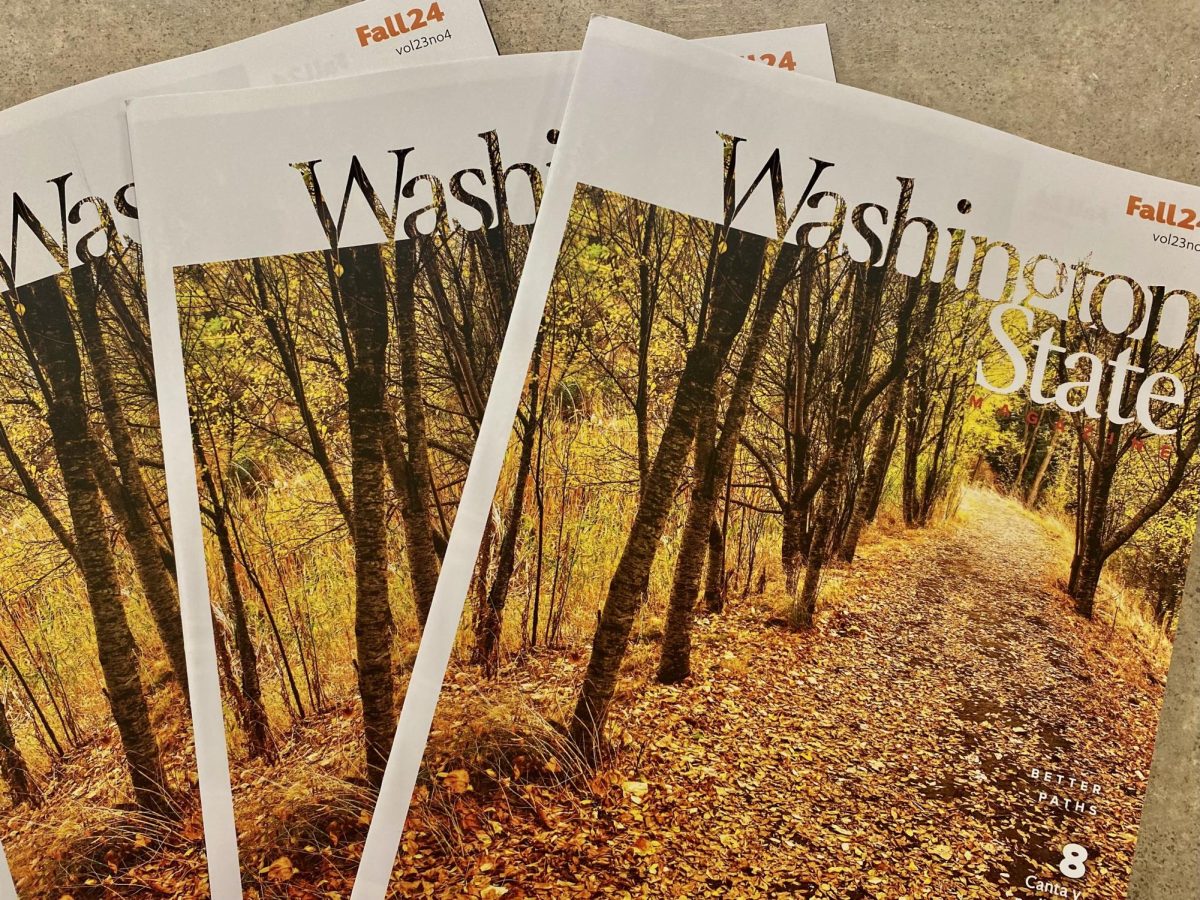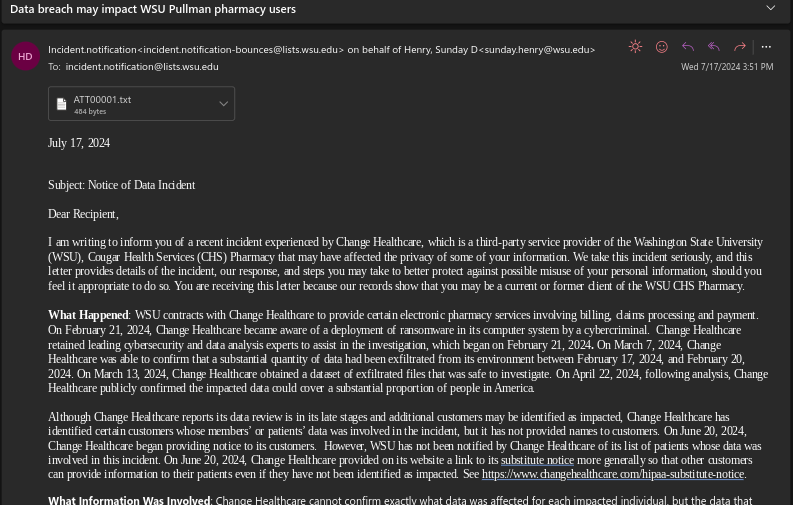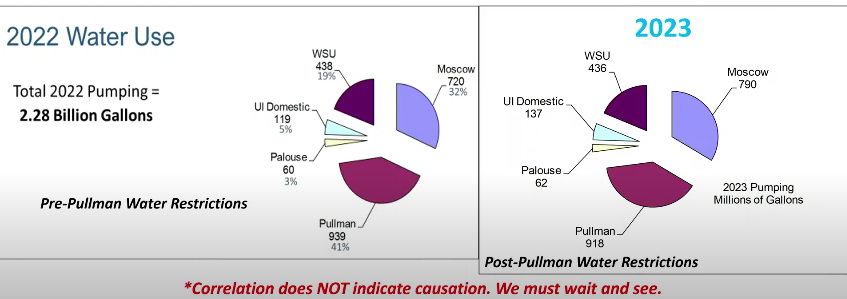The Foley Institute will implement a course focused on climate change and environmental politics this fall.
Political Science 320 is a speaker series course held on Tuesdays and Thursdays from12:05 – 1:20 p.m. in the Foley Institute.
“The Foley Institute has tied courses to speaker series before, and this year, establishing a course like this and tying speakers to this type of class makes sense,” said Richard Elgar, Foley Institute clinical assistant professor and course head, “There’s no bigger issue at the moment than climate change and environmental politics.”
The fall course coincides with speakers from a range of backgrounds to try and address some of the climate issues facing our global community, Elgar said. Guest speakers coming in for the course vary across fields and represent varying opinions and stances on the matter.
“From activists to political experts, this course provides students with an opportunity more diverse than a typical course would be,” Elgar said.
The course’s guest lectures start Aug. 31, with guest speaker Jason Vogel, Interim Director of UW’s Climate Impacts Group. Vogel will be covering both what climate change in the Pacific Northwest looks like, and also what we can do to mitigate that.
“My lecture’s primary objective is for people to feel a sense of agency,” Vogel said. “I don’t want them to think that climate change is something they have no control over, but instead is something where each of us play a role, and we can make a positive contribution to build a better world.”
In addition, a philosopher coming in who is going to be talking about scientific literacy, Elgar said. This lecture will be focused on discussing climate issues with the public that are not always easiest to get across
The initiative of the course is to give students a wide range of expert opinions and provoke deeper level thinking when it comes to the topic of climate change, he said.
“I think this course is so interesting because it allows students to get access to many different opinions, and a lot of information, all from people who are experts in their field,” Elgar said.
The course utilizes different speakers to give students a framework for navigating the complicated future of our environment, he said. Group conversations on current events, the current climate condition, and what to do moving forward will give students enrolled in the course a nuanced understanding of the complicated and politicized state of climate affairs.
WSU students can earn credit by signing up for a course linked to the speaker series, Elgar said. A QR code is found on the Foley Institute website and pizza and soft drinks will be served throughout the series.


